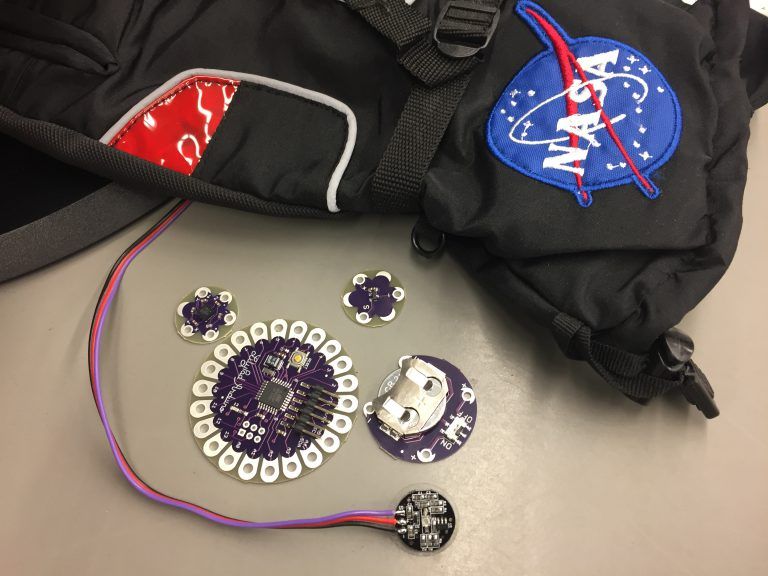
When working in space, astronauts are at high risk of experiencing mental distress due to the unique set of challenges and dangers they face while doing their job.
In response to this, researchers and students at Florida Polytechnic University are developing technology that will be fitted into the next generation of spacesuits and space clothing in an attempt to boost psychological well-being, as well as maximizing comfort and efficiency, .
This technology, known as Smart Sensory Skin, will use wireless sensors to detect a range of physical deficiencies and will make automatic adjustments in the astronaut's environment—whether it be in the spacesuit or aboard the spacecraft—that will respond to their individual needs. These adjustments could include making changes in temperature, light exposure, light color and oxygen levels.
The final design will enable physicians on Earth to monitor the astronaut's blood pressure, pulse and other bodily functions. While monitoring technology to carry out these tasks already exists, it tends to be uncomfortable, cumbersome and the data collected must be reviewed by a physician before any changes in the environment can be made.
The Smart Sensory Skin, on the other hand, is lighter and more ergonomic, and will be designed to merge seamlessly with an astronaut's clothing. It is hoped that this will minimize distractions for the astronauts, enabling them to carry out their job safely and more effectively.
"It's vital for astronauts to be mentally healthy during missions and right now there's no active, real-time solution to help them when they feel stressed or anxious," Arman Sargolzaei, a professor of Electrical Engineering at Florida Polytechnic, said in a statement.
"This technology would provide them with immediate relief to their state of mind," he added.
An astronaut's wellbeing can be negatively affected by a variety of factors, including lack of sleep, excessive exposure to light, strain from the effects of low-gravity, isolation from friends and family, insufficient exercise and fear of making mistakes in a high-pressure environment where room for error is small, according to Sargolzaei.
The monitoring system is being developed in collaboration with NASA and has been awarded a grant by the agency's Florida Space Research Program.
"This project started as an assignment when I was a freshman, and I never expected it to grow the way it has," said James Holland, a student at Florida Polytechnic who is involved in the project. "I'm excited to see what we can accomplish as our research continues."
Uncommon Knowledge
Newsweek is committed to challenging conventional wisdom and finding connections in the search for common ground.
Newsweek is committed to challenging conventional wisdom and finding connections in the search for common ground.
About the writer
Aristos is a Newsweek science reporter with the London, U.K., bureau. He reports on science and health topics, including; animal, ... Read more
To read how Newsweek uses AI as a newsroom tool, Click here.








